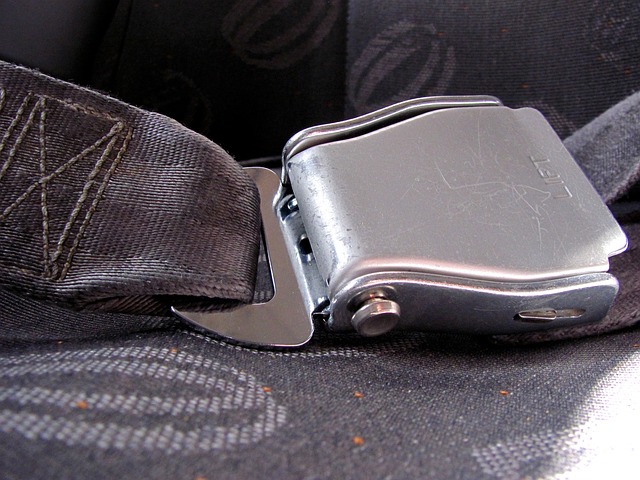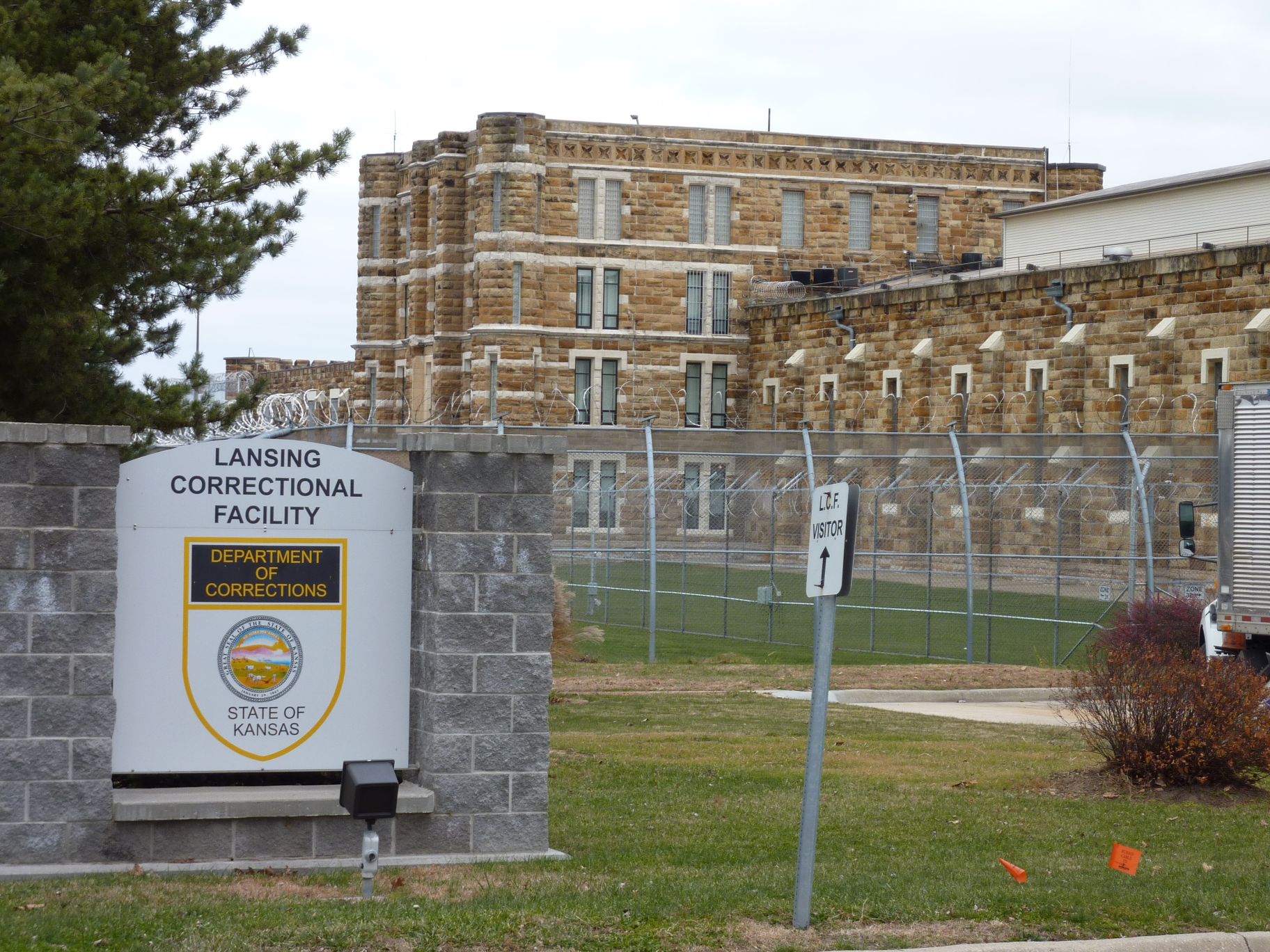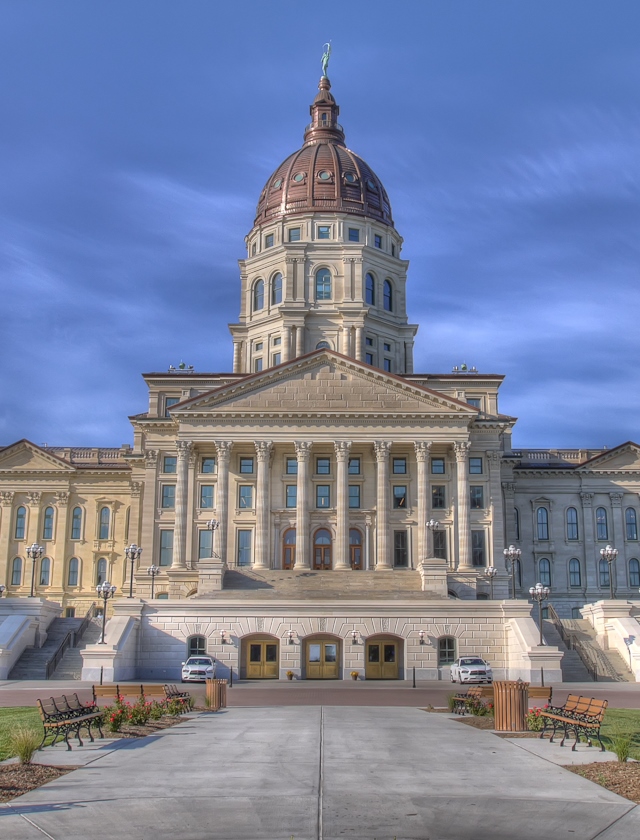(Updated to revise posture of expanded alcohol hours bill.)
When lawmakers return to work this Thursday, there’s still a lot that needs to be done before business concludes May 4.
Among other things, they need to quickly fix an $80 million glitch in the education bill that they passed at the end of their regular session. They also need to pass a budget.
They also can be expected to deal with calls for more tax cuts and a bill that would lower the age for carrying a concealed handgun in Kansas.
Here’s a look at the status of major bills going into the wrap-up session:
Teacher due process rights: The Kansas House moved to restore teacher due process rights that were peeled away four years ago. The House voted 73-48 to approve a bill giving those rights back, but the Senate showed no interest in working the legislation.
Seat belts: As introduced, the bill would have allowed seat belt use to be introduced as evidence in personal injury cases, potentially reducing civil damages for someone injured in a car wreck who wasn’t belted in. The Senate voted 25-15 to pass the bill.

The House, meanwhile, rewrote the bill so it was narrower in scope, only allowing seat belt use to be introduced as evidence in product liability claims against carmakers alleging harm caused by a defective vehicle occupant protection system.
The House version of the bill passed 94-30. The legislation now awaits action in a conference committee.
Slot machines: A bill authorizing gambling at Wichita’s shuttered Greyhound Park if approved by voters passed out of the House Federal & State Affairs Committee in early March. It sits below the line on the House calendar.
The bill would allow slot machines in Sedgwick County and in other places where pari-mutuel betting was licensed, such as the old Woodlands track in Kansas City, Kan. Gambling would only be allowed with a public vote. A similar bill awaits action in the Senate after passing out of committee.
Sports wagering: Five bills were introduced this year – four in the House and one in the Senate – that would allow the state to offer sports betting if it’s eventually approved by the U.S. Supreme Court.

The bills took different approaches and paid different amounts to various major league sports interests, such as the MLB and MLB – HB 2533, HB 2752, HB 2792, HB 2793 and SB 455 – are going nowhere this year, although the Supreme Court is expected to render a decision in the case at any time.
Taxes: This may still be the wild card at the Kansas Legislature during the veto session. The Senate passed a half-billion dollar tax cut just before the Legislature adjourned its regular session earlier this month. The Senate passed the bill 24-16.
While it seems doubtful that bill will pass in the House, it has some elements that lawmakers in both chambers like, namely letting Kansas residents itemize on their state returns if they don’t itemize on their federal returns.
The state stands to gain money from a change in the federal tax code that encourages taxpayers to take a generous standard deduction on their federal return rather than itemize.
However, that means Kansans will have to take the much less valuable standard deduction on their state return, which may net state government more money.
There is a view that this would be fundamentally unfair to Kansas taxpayers. The question is can the state afford to give up the revenue.
Guns: Gov. Jeff Colyer has already signed a bill making it illegal for domestic abusers to have guns. That was easy.
The hard debate is expected to be over another bill that would lower the age for carrying a concealed handgun in Kansas to 18 from 21. The new age requirement is part of the underlying bill recognizing concealed-carry licenses from other states.
The House already passed a variation of the reciprocity bill on a 76-44 vote that not only lowered the age for carrying a concealed handgun in Kansas but also would have allowed colleges and universities to require permits for anyone carrying a concealed handgun on campus.
However, in conference committee, the college portion of the bill was removed, leaving the reciprocity and age provisions.
The House voted 82-42 when it amended the original reciprocity bill to lower the age for concealed carry.
But that also was a couple weeks before the Parkland, Fla. shootings so it’s possible the mood may have changed.
The Senate has not had a chance to vote on the lower age restriction.
Body cameras: A bill that would make police body camera footage public in limited situations is awaiting action in a House-Senate conference committee. The bill would require police to make body camera footage available to victims’ families or their representatives within 20 days of a request. The bill doesn’t mandate that the footage be made available to the general public, including media. The bill passed unanimously in both the House and the Senate.

Wrongful conviction: The House and Senate are taking different approaches to compensating anyone wrongfully convicted. The House wants a bill that would give someone wrongfully convicted $80,000 for each year they spent in prison, while the Senate wants to pay $50,000.
Kansas currently doesn’t compensate anyone who’s been wrongfully convicted. The bill awaits action in a conference committee when legislators return. The House passed its version of the bill 116-1. The Senate passed its version of the legislation unanimously.
Proof of citizenship: Two bills – one in the Senate and the other in the House – would have lifted the proof-of-citizenship requirement for would-be voters in Kansas. Neither bill got out of committee this year. The fate of the law will now be left in the hands of a federal judge in Kansas City, Kan.
Israel boycott: Gov. Jeff Colyer signed a bill that lawmakers hope will fix a constitutional deficiency with a law barring state contractors from boycotting Israel. The new language approved by the Legislature is intended to address problems that were raised in January when a federal judge ruled that a 2017 law passed by the Legislature violated the First Amendment rights of a Wichita math teacher. The House passed the new bill 88-32 and the Senate passed it 36-1.
 Education: Gov. Jeff Colyer signed a bill that would spend about $535 million on schools over five years to answer a state Supreme Court ruling that found the state didn’t adequately fund schools. The bill passed on a 63-56 vote in the House and a 21-19 vote in the Senate. However, there was an $80 million glitch found in the bill that will need to be fixed during the wrap-up session so the state can take its plan to court.
Education: Gov. Jeff Colyer signed a bill that would spend about $535 million on schools over five years to answer a state Supreme Court ruling that found the state didn’t adequately fund schools. The bill passed on a 63-56 vote in the House and a 21-19 vote in the Senate. However, there was an $80 million glitch found in the bill that will need to be fixed during the wrap-up session so the state can take its plan to court.
Constitutional amendment on schools: The House Judiciary Committee approved a constitutional amendment giving the Legislature exclusive authority to decide whether Kansas schools are adequately bankrolled. It’s unclear whether the bill will be worked by the full House during the veto session. It needs support from two-thirds of the Legislature, making passage highly improbable.
School safety: The House approved a $5 million plan for security upgrades at elementary and secondary schools across Kansas. The bill requires the state Board of Education to develop standards for securing schools statewide in consultation with the Kansas Bureau of Investigation, the state health department, the state fire marshal and the adjutant general. The vote was 119-5. The bill would appropriate money for security grants that would go to school districts statewide. Districts would have to match the state grants dollar for dollar. The Senate hasn’t acted on the bill.
Rogue homes associations: A bill empowering homeowners seeking legal protection from abusive homes associations died in the House. The bill would have fined officials from a homeowners association up to $500 for knowingly violating the state’s homeowners bill of rights, which was signed into law in 2010.
Adoption: A bill that would have allowed adoption and foster care organizations contracting with the state to refuse placements with gay and lesbian couples based on religious grounds passed in the Senate and was derailed in the House. The bill passed in the Senate on a 28-12 vote. The House voted down the bill 64-58. The bill now awaits action in a House-Senate conference committee.
Medicaid expansion: A bill expanding Medicaid to 145,000 Kansans passed out of a Senate committee in early February but languished on the Senate calendar all session.
Food sales tax: Lots of talk about cutting the state sales tax on food, but it never really gained any momentum this year. In February, a Senate committee held a hearing on a constitutional amendment that would lower the sales tax on food, but the legislation didn’t advance. Here’s an idea that Democratic state Rep. Tim Hodge had that never got anywhere as well. 
STAR bonds: There was plenty of smoke over efforts to rein in this lucrative development tax break that critics say is abused. A Senate committee considered bills – SB 432 and SB 434 – that critics said would have effectively killed the incentive, which is intended to foster the development of tourism-related projects like the Kansas Speedway. But in the end, the Senate Commerce Committee adjourned for the year and no action was taken on the legislation. It wasn’t the first time lawmakers have complained about STAR bonds and it probably won’t be the last.
County election commissioners: The Legislature passed a bill stripping the secretary of state’s office of budget power over the election commissioners in the state’s four largest counties – Johnson, Wyandotte, Shawnee and Sedgwick. It passed the House on a 90-30 vote and the Senate on a 29-10 vote. The bill was signed by Gov. Jeff Colyer last week.
There was an effort to take away the secretary of state’s ability to appoint those commissioners. The appointments would have been turned over to the counties. But that bill, pushed by Senate Minority Leader Anthony Hensley, never got much traction.
Drunk driving: Gov. Jeff Colyer signed into law a bill that toughens penalties for repeat drunk-driving offenders who kill or seriously injure someone. Known as Caitlin’s law, the bill was named after Caitlin Vogel, a 24-year-old Olathe school instructor killed in a 2016 car wreck when she was struck by a driver with two previous drunk-driving convictions. The bill passed unanimously in both chambers.
Lobbying: Gov. Jeff Colyer signed legislation expanding lobbying laws to cover the executive and judicial branches. The bill, backed by Senate President Susan Wagle and Senate Minority Leader Anthony Hensley, requires anyone lobbying the judicial and executive branches to register as a lobbyist and report their expenses. Anyone lobbying the Legislature already must register with the state and report expenditures. The bill passed unanimously in both chambers.
Alcohol: A bill allowing restaurants and bars to start serving alcohol at 6 a.m. has passed the Senate on a 27-10 vote but was rejected by the House. More work must be hammered out in a conference committee
The expanded hours, which would be three hours earlier than the current start time, are part of a larger package of liquor laws that was already agreed to by a conference committee but later turned down in the House.
Child welfare transparency: A bill that would give the public more access to information about the deaths of abused and neglected children cleared the Kansas House and is now awaiting action in a House-Senate conference committee. The bill passed the House unanimously.
Gut-and-go tactics: A bill banning the legislative strategy of removing the entire contents of one bill and replacing it with another died in a committee this year.

Unnamed bills: Legislation aimed at making it easier to know who sponsors a bill died in the House and Senate this year. Here’s the House bill and the Senate bill.
Recorded votes: Bills requiring legislative committees to record motions and votes failed to go anywhere this session in the Senate or in the House.
Campus free speech: The Senate killed a bill that would have required the state’s colleges and universities to adopt policies affirming the right to free speech. The bill died after concerns were raised that it would have adversely affected LGBT students. The Senate deadlocked 20-20 on the bill, effectively killing the legislation.
Transportation: The House and Senate have passed different versions of a bill creating a task force that will set the stage for a new multi-year transportation plan. The makeup of the task force is different in each bill. The House version is here. The Senate version is here. The Senate passed its version 33-5. The House passed its bill 123-1. A House-Senate conference committee will have to iron out the differences.
Tax incentive transparency: The House passed a bill requiring the Commerce Department to establish a database for diisclosing information on economic development incentive programs. The House vote was 114-7. The bill now sits in a Senate Committee awaiting action.
Constitutional convention: A proposal asking Congress to call a constitutional convention to place fiscal limits on the federal government failed to muster enough support in the state Senate to advance. The resolution received 22 votes, five short of the two-thirds majority needed to gain passage.
Medical Marijuana: Not a bill. But there was a push to legalizing medical marijuana during the House debate over legislation allowing the possession and sale of certain cannabis products without THC, a chemical compound that produces a euphoric high in marijuana. The House voted down the proposal 69-54.
Swatting: Gov. Jeff Colyer signed a bill increasing the penalties for making hoax emergency calls that lead to injuries or deaths. The Legislature passed the bill after the fatal shooting of an unarmed Wichita man by a police officer in December. The bill passed unanimously in both the House and the Senate.
Education inspector general: A Senate committee voted down a proposal to create an inspector general who would keep a close eye on public school spending. The bill failed to gain support in the committee after concerns were raised about whether it was constitutional because it infringed on the authority of the state Board of Education.
















